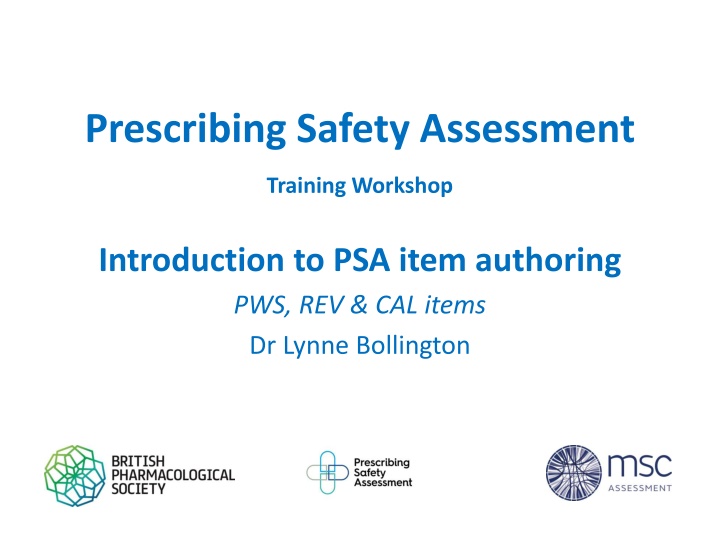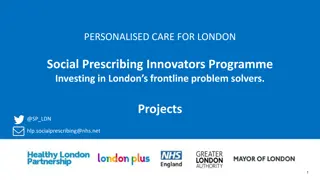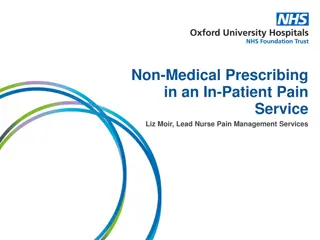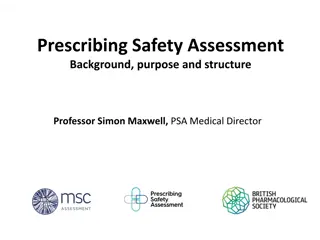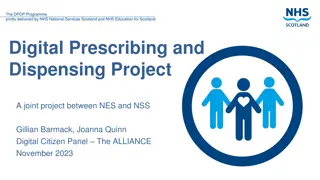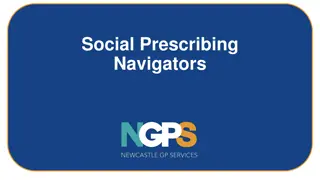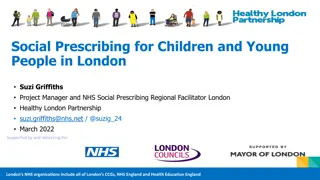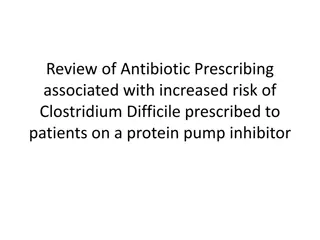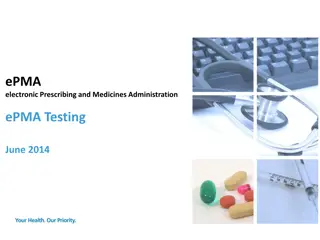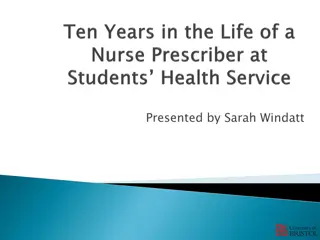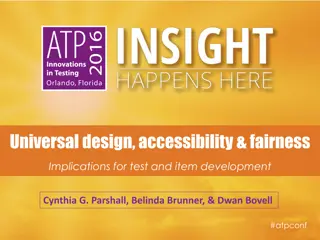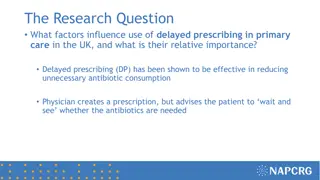Prescribing Safety Assessment - Item Development Process Overview
In the Prescribing Safety Assessment Workshop, item authoring is a crucial process involving multiple stages such as new item creation, editing, peer review, and final assessment board approval. Copy editors and clinical reviewers ensure the accuracy and quality of item content, while peer reviewers assess clinical appropriateness. The Standard Setting Group establishes pass marks, ensuring thorough coverage of therapeutic domains. This comprehensive process ensures the development of high-quality assessment items for prescribing safety.
Download Presentation

Please find below an Image/Link to download the presentation.
The content on the website is provided AS IS for your information and personal use only. It may not be sold, licensed, or shared on other websites without obtaining consent from the author.If you encounter any issues during the download, it is possible that the publisher has removed the file from their server.
You are allowed to download the files provided on this website for personal or commercial use, subject to the condition that they are used lawfully. All files are the property of their respective owners.
The content on the website is provided AS IS for your information and personal use only. It may not be sold, licensed, or shared on other websites without obtaining consent from the author.
E N D
Presentation Transcript
Prescribing Safety Assessment Training Workshop Introduction to PSA item authoring PWS, REV & CAL items Dr Lynne Bollington
Agenda PSA item development process Creating new items
Item development is a multi-stage process New, V0 (returned VR) Submit, V1 Edit, V2 PRM, V3 AB & SSG, V4 Use 5 stages of version control (V0 V4) Only items at V0 & VR can be edited by authors Items may be returned to VR for revision and resubmission at any stage
Copy editors ensure the items are in house style New, V0 Submit, V1 PRM, V3 AB & SSG, V4 Edit, V2 Use information is in the correct order spelling is corrected superfluous information is deleted all abbreviations are from the approved list reference ranges are consistent with house style metadata are complete and correct
Clinical reviewer checks item content: New, V0 Submit, V1 PRM, V3 AB & SSG, V4 Edit, V2 Use items on correct template PMH matches DH indications and doses match BNF keyed answer matches BNF (if appropriate) Identify potential problems in item construct issues are fixed, or flagged for further consideration
Peer review for clinical appropriateness: New, V0 Submit, V1 Edit, V2 PRM, V3 AB & SSG, V4 Use reviewers come from various backgrounds and have differing expertise check face validity match contemporary practice unambiguous and clear appropriate difficulty relevant to FY1
Assessment Board approves paper(s); Standard Setting Group set pass mark: New, V0 V1 V2 Submit, Edit, PRM, V3 AB & SSG, V4 Use Assessment Board: approves paper build, including item anchoring, re-use etc checks against assessment blueprint confirms coverage of therapeutic domains and topics checks item content elaborates on mark schemes reviews item usage post-hoc SSG: checks item content considers difficulty of items sets pass mark/item
Item progress can be viewed by the author in the Dashboard VR V1 V2 V3 Feedback is visible at all stages V4 V0 DD
Agenda PSA item development process Creating new items
Adding new item Side menu expands to show text
Prescribing items (PWS) PWS items present a scenario where a prescription is required Reasoning and judgement Deciding on the most appropriate prescription to write, based on the clinical circumstances Measurable action Writing a safe, effective prescription for a single medicine to tackle a specific indication or syndrome.
Edit the prescribing request as appropriate
Use the British National Formulary, to which the candidates will have access throughout, as the ultimate arbiter of dose ranges, routes, indications, contra-indications, etc.
Include justifications for optimal and suboptimal answers Remember to save the mark scheme after adding each drug.
For IV fluids, indicate which volumes and which rates are acceptable
System navigation help tools In viewing mode: In edit mode: delete copy edit
Fac: 98.6% Dis: 0.084 New, V0 Submit, V1 PRM, V3 AB & SSG, V4 Edit, V2 Use This item was insufficiently focused
Fac 98.6% Dis: 0.084 New, V0 Submit, V1 PRM, V3 AB & SSG, V4 Edit, V2 Use . . there were too many correct answers
Prescription Review items (REV) REV items present a prescription for review, that was written by someone else Reasoning and judgement Deciding which components of the prescription are inappropriate, unsafe or ineffective
Identifying ADRs, interactions, contraindications and dose errors Only ONE dose error permitted - more than one is very unlikely in practice
Two questions, with 1-3 marks each (max 4 marks in total) If one of the questions is an interaction, include ONE of the interacting drugs in the case presentation and lead-in so candidates don t have to pick both drugs from the list of medicines.
House style is important here List between 6 10 medicines lower case, generic name, no strength Select from drop-down lists that appear when you begin to type
Calculation skill items (CAL) Competencies Reasoning and judgement Making an accurate drug calculation based on numerical information Measurable action Recording the answer accurately with appropriate units of measurement
All facts required to do the calculation must be included
Fac: 98.0% Dis: 0.055 New, V0 Submit, V1 PRM, V3 AB & SSG, V4 Edit, V2 Use This item was too easy and did not discriminate Complex, multi-step calculations tend to work best
